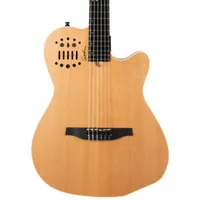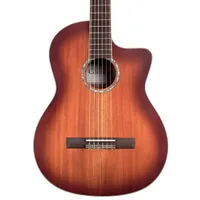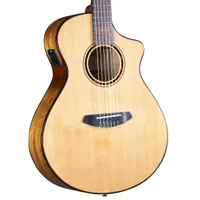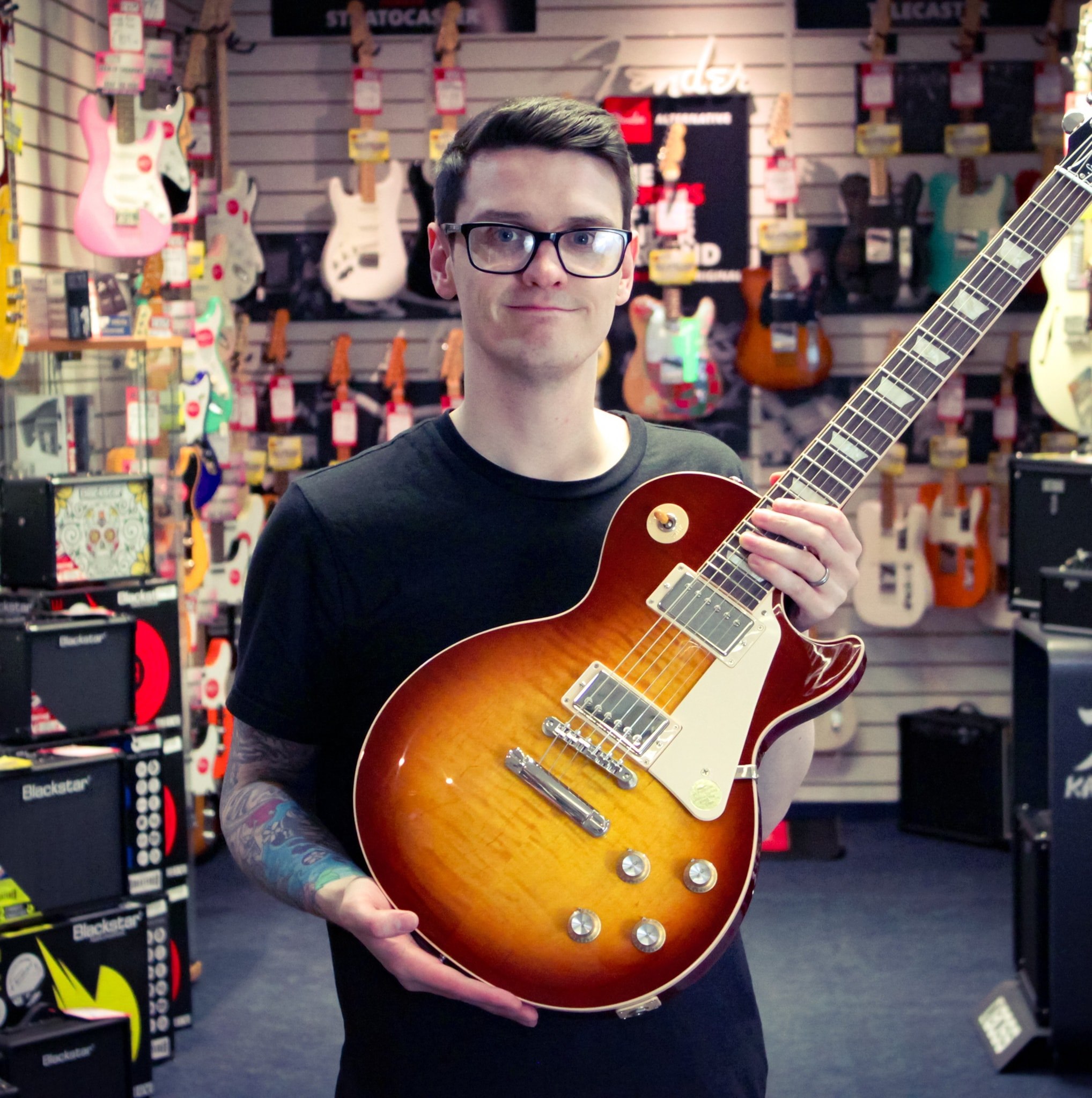Best classical guitars: my pick of the finest nylon-string acoustics
From small-scale acoustics for your first steps to stage-ready electro-classicals, here's what to look for
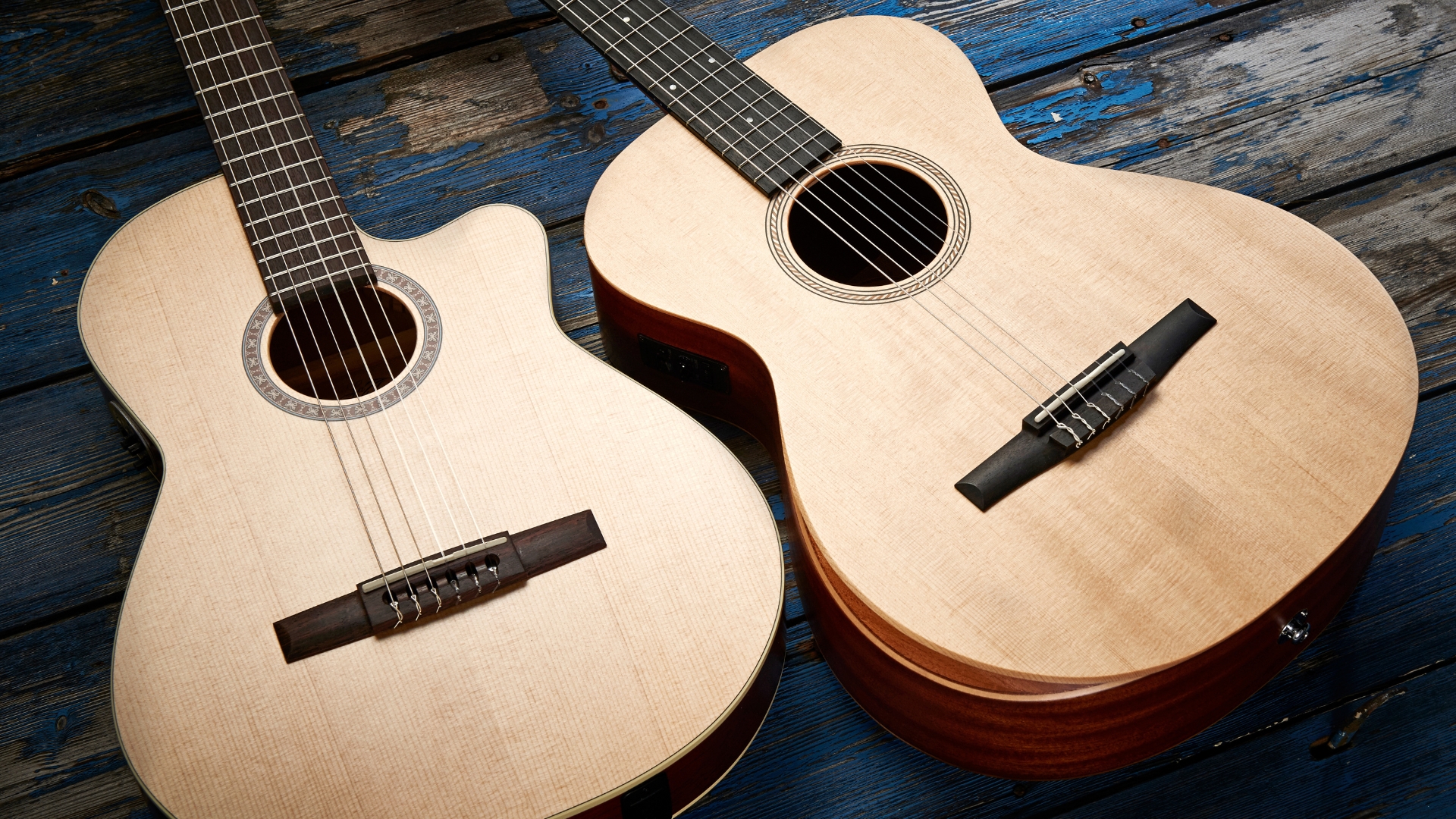
All the latest guitar news, interviews, lessons, reviews, deals and more, direct to your inbox!
You are now subscribed
Your newsletter sign-up was successful
I believe classical guitars should be considered in the same way that traditional acoustics and electrics are – different tools to add more interesting sounds and textures to your repertoire. The best classical guitars deliver dynamics and warmth of tone, and are something every guitarist worth their salt should consider investing in.
Having learnt to play on a super-budget nylon-string – as many young guitarists do – I was painted an unfair picture of what a classical guitar is really about, but the reality is that they offer something very different, and I’ve now used them on countless studio recordings, across a variety of genres. Classical guitars are so much more than just playing Bach arrangements, and having one can be a game-changer for your songwriting, production, and even improve your technical proficiency with other styles of guitar.
For me, the best overall right now is the Taylor Academy 12e-N. It's a brilliant all-rounder that combines a balanced tone with value for money, it's also got a built-in pickup system, making it a real jack of all trades. If you're after a comfortable playing instrument suited to beginners, have a look at the Ibanez GA35TCE, which features a super comfortable neck profile not too dissimilar to that of an electric guitar. It looks very modern and cool, too.
If you're buying your first nylon string acoustic, then I'd recommend checking out my how to choose section, which will take you through the steps to ensure you make the right buying decision. I've also put together an FAQs section which answers loads of common questions, and a glossary of key terms to help you decipher the lingo in this guide.
My top picks
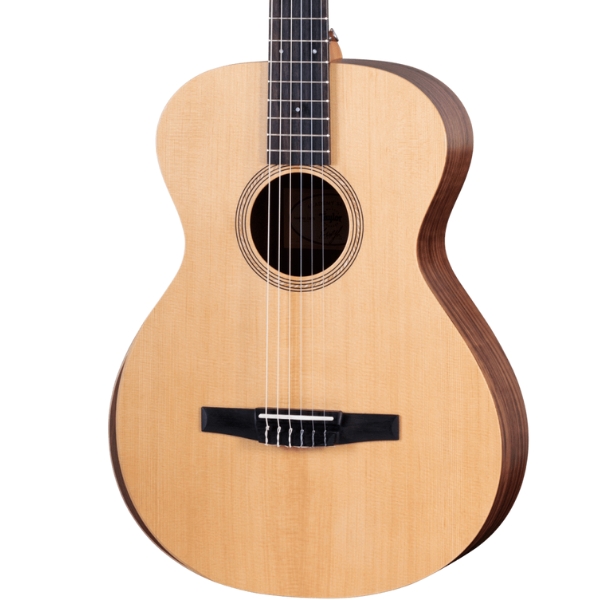
Representing superb value for money and able to cover all the bases necessary for a classical guitar thanks to its built-in pickup, the Taylor Academy 12e-N is my top pick that will satisfy the majority of guitar players seeking a nylon string acoustic.
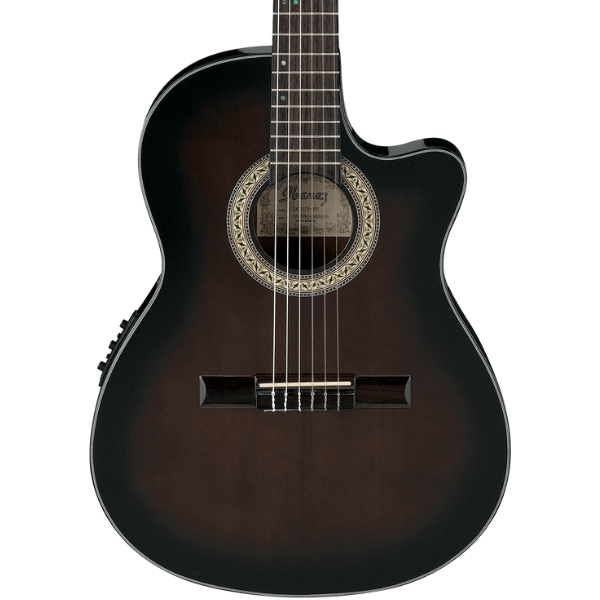
For those just getting started with nylon string guitars, the Ibanez GA35TCE is a great option, particularly if you're moving across from electric guitar. With a super comfortable neck profile and modern look, it's very beginner-friendly.
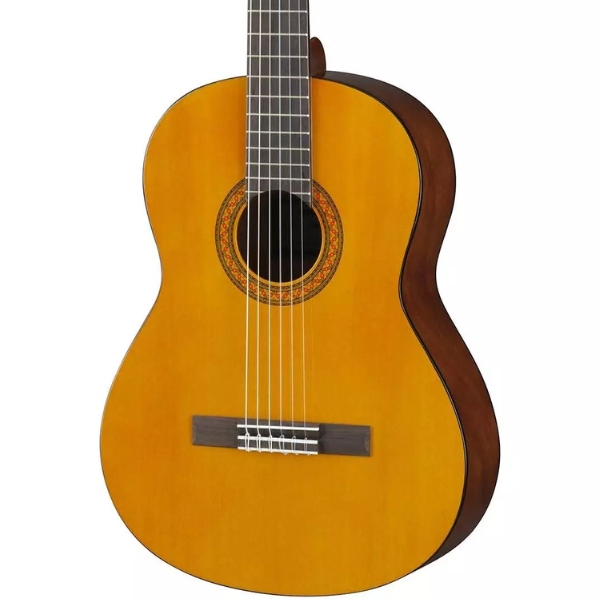
If you want a cheap entry point into classical guitars, the Yamaha C40II should be your go-to. It's very no-frills yet delivers a surprisingly balanced tone for something so budget-friendly, and features Yamaha's typical great build quality.
Best overall
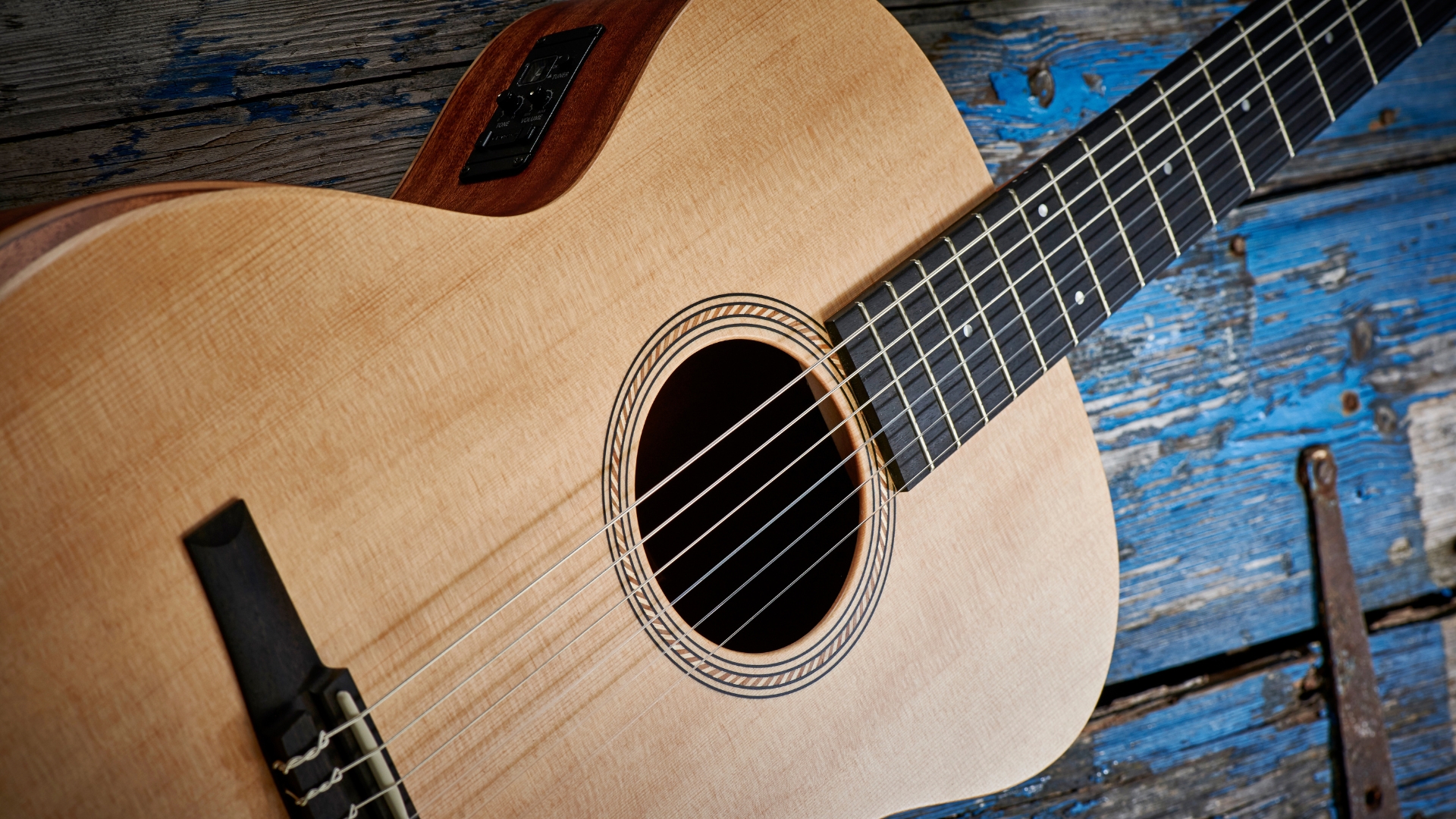
1. Taylor Academy 12e-N
Our expert review:
Specifications
Reasons to buy
Reasons to avoid
✅ Buy if you a brilliant all-rounder. This is a mid-range classical guitar with superb build quality that fuses vintage and modern specifications.
❌ Avoid if you prefer a traditional feel: The neck is a lot more comfortably profiled than traditional classical guitars, so look elsewhere if you want a 'proper' classical.
Okay, so when it comes to the very best classical guitars, your mind may not go straight to the El Cajon-based guitar giant – after all, the sun-kissed beaches of California are as far away from Spain as you can get. That said, for us, Taylor offers one of the best value-for-money options on the market.
The Taylor Academy 12e-N is designed to be an affordable and accessible nylon-strung guitar for those new to this style. With its super-comfortable neck profile and trademark Taylor body shape, this guitar is a joy to play for either brand-new players or seasoned pros. As can be expected, trademark Taylor build quality is visible throughout.
To make things even better, the humble 12e-N comes loaded with Taylor's beloved ES-N pickup system, meaning this guitar is more than capable of taking to the stage, so it’s also a versatile option.
The tones of the 12e-N are honest, adhering to the trademark sounds and dynamics of the best classical guitars. It’s warm and snappy, but also has impressive projection, retaining clarity throughout.
Best beginner
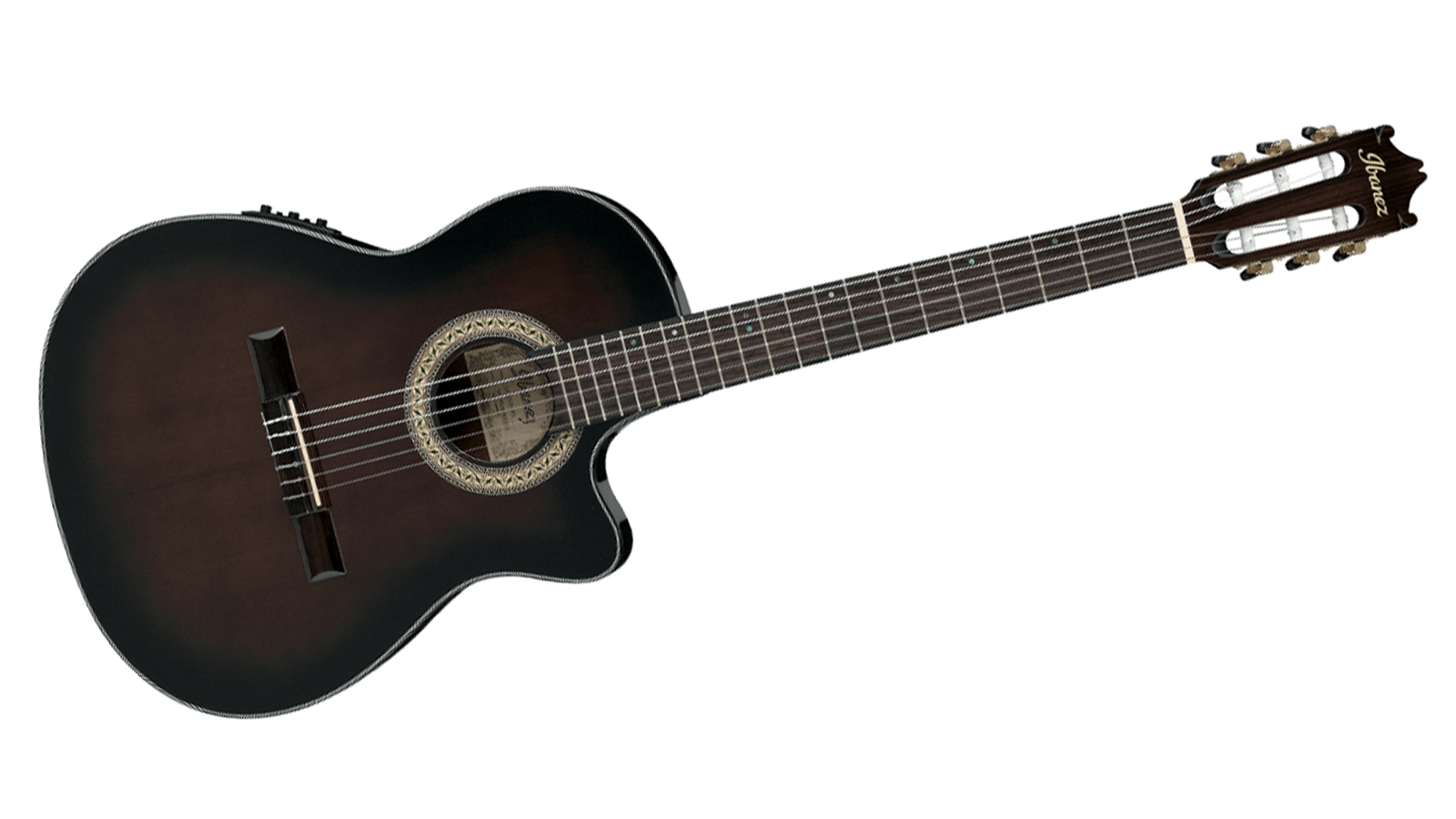
2. Ibanez GA35TCE
Our expert review:
Specifications
Reasons to buy
Reasons to avoid
✅ Buy if you want a comfortable intro into classical guitar: With its narrow neck width and comfortable body proportions, this is a great way to get acquainted with nylon strings before moving on to something more traditional.
❌ Avoid if you have big hands: The narrow neck width could prove too cramped for player swith larger proportions.
Don’t let the small stature of the Ibanez GA35TCE fool you. This mighty classical packs a punch. Described as a “thinline” by Ibanez, this is easily one of the most comfortable nylon-strung classical guitars available right now – especially if you are coming from an electric guitar.
Despite its modest price point, the construction of the GA35TCE is high quality, utilizing excellent tone woods throughout, with my personal favorite detail being the Nyatoh neck, which both looks and plays superbly.
Like many of the guitars on this list, this Ibanez comes equipped with a pickup system. In this case, it’s the AEQ210T preamp and tuner system. So if you fancy playing live or even recording, then the Ibanez GA35TCE is more than capable.
The sapele back and sides deliver a rather rich and mid-heavy tone, which pairs particularly well with the mellow nature of the nylon strings. So while the GA35TCE may look and play like a modern guitar, it more than delivers that well-rounded and dynamic tone you’d expect from a classical guitar.
Best budget
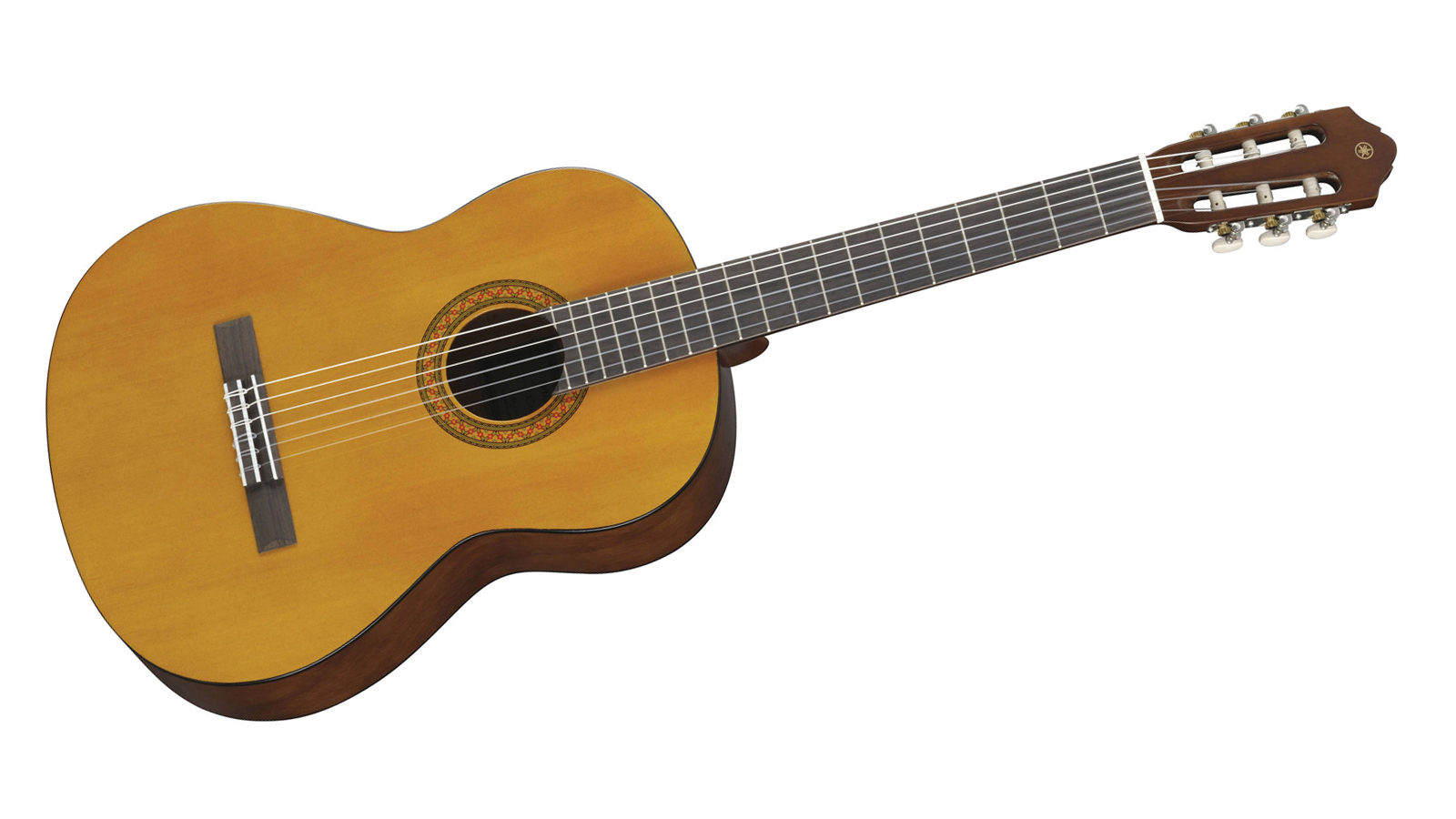
3. Yamaha C40II
Our expert review:
Specifications
Reasons to buy
Reasons to avoid
✅ Buy if you want a cheap nylon string acoustic: The go-to for players starting in schools, this low-cost classical is perfect for those who don't want to spend loads.
❌ Avoid if you want volume: As it's made from cheaper tonewoods, the projection on this guitar isn't the best.
This super affordable classical option from Yamaha is ideal for those looking for their first-ever guitar. This full-sized classical model may not have the bells and whistles of others on the market, but it makes up for it with that famous Yamaha build quality.
With a comfortable, traditional classical neck profile and surprisingly balanced tone, the C40II impresses with the sheer value on offer here.
While super-budget classical guitars may tempt you, I would wholeheartedly recommend the C40II over them, due to its solid and robust build quality, making it a perfect platform to get you or your little one started.
The locally sourced tonewoods used for the construction may not sound too glamorous, but actually the C40 has a beautiful natural sound, though projection isn’t particularly punchy.
Best for gigging
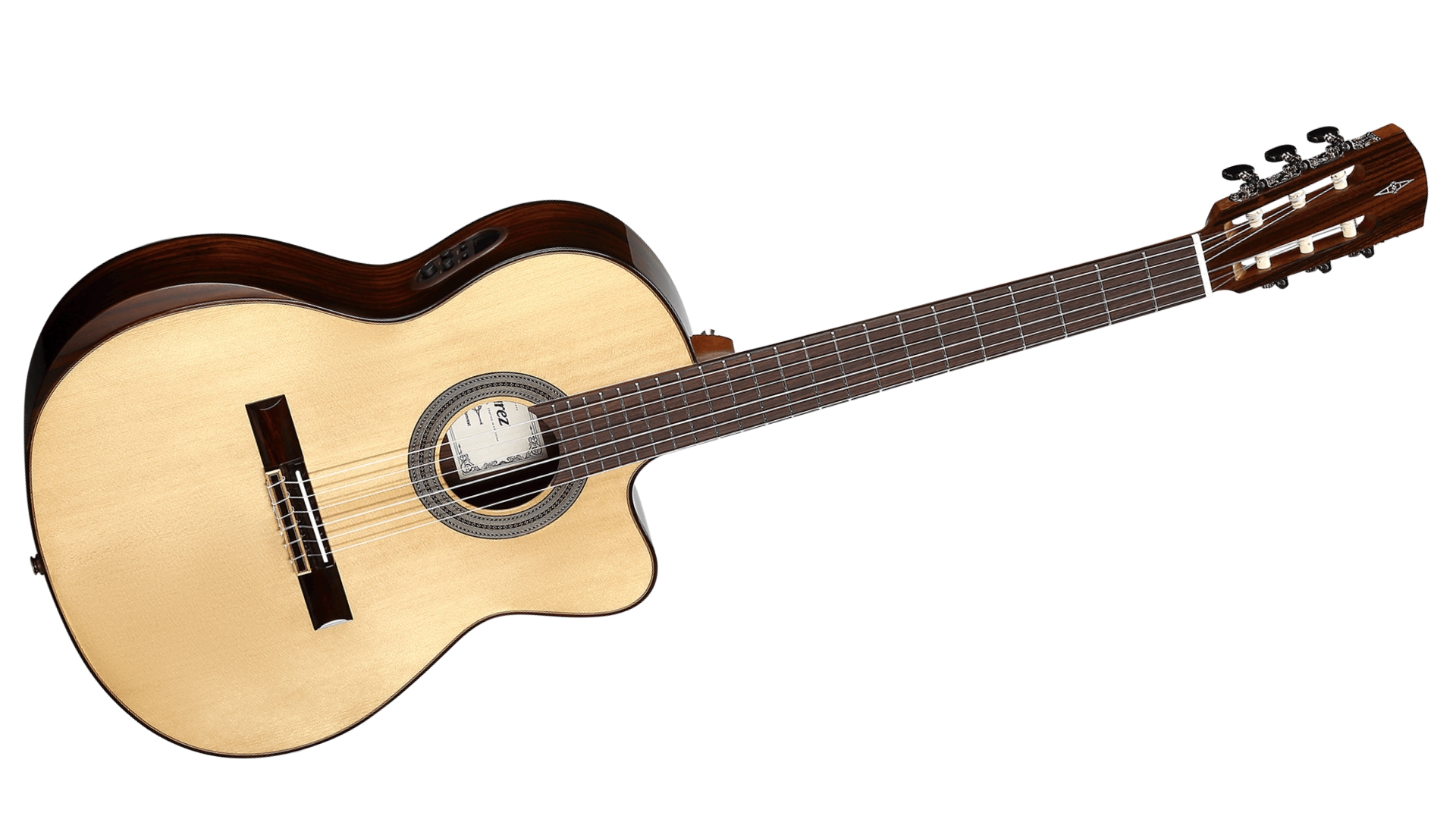
4. Alvarez AC70HCE
Our expert review:
Specifications
Reasons to buy
Reasons to avoid
✅ Buy if you want to play classical guitar live: With its superb tonewood selection and LR Baggs pickup system, this is a brilliant nylon string for live playing.
❌ Avoid if you prefer traditional necks: The neck feel here is very different from traditional classicals, so avoid if you prefer that type of profile.
Alvarez makes some of the best bang-for-buck acoustics on the market, and their classical guitars absolutely follow this trend. The AC70HCE is my favorite classical guitar in their range as it seamlessly blends classical tones with modern appointments.
The construction of the AC70HCE is pretty astonishing for the price point, with the standout for me being Alvarez’s special curing and torrefaction process for the construction woods. This is a process of drying and strengthening that can take months or even years and adds impressive stability and tonal enhancements.
If you’re unfamiliar with classical guitars and are more used to playing traditional acoustics, this is a great option. With the neck joining the body at the 14th fret instead of the 12th like most classical guitars, and with a narrower neck, with a radiused fretboard, this is far more familiar to my hands and would be a perfect jump-in point for those new to classical guitar – though classical guitar purists may find it somewhat compromised for this reason.
An area that the AC70HCE certainly isn’t compromised is tonally. It’s got a beautiful natural tone, which has plenty of warmth, but also a focused and precise cut, courtesy of the sitka top. The addition of the LR Baggs StagePro Bronze EQ and under-saddle pickup makes this the perfect live companion too, managing to do an admirable job of amplifying the robust tone of the AC70HCE. For live players, it’s one of the best classical guitars around.
Best compact
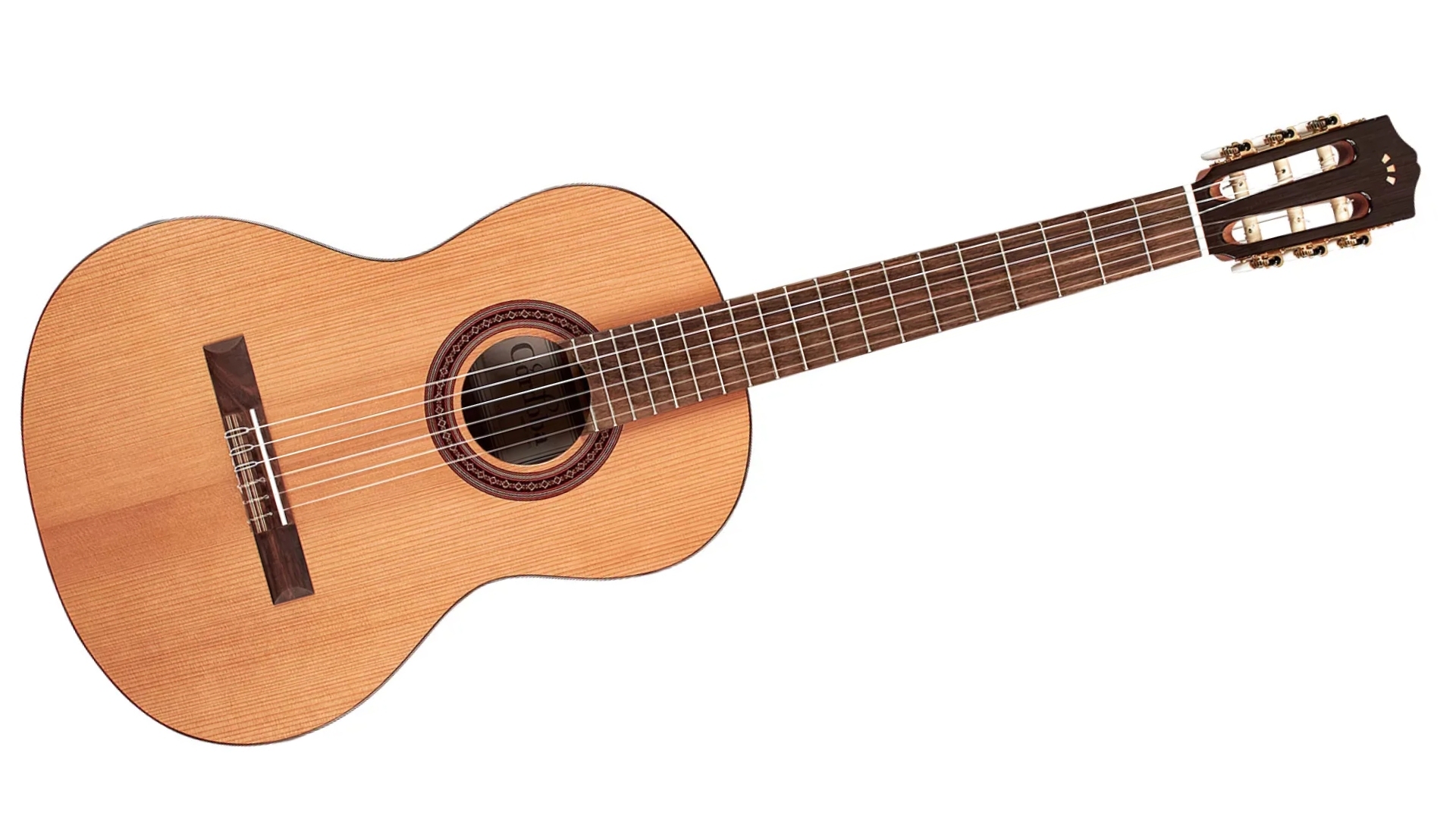
5. Cordoba Cadete 3/4
Our expert review:
Specifications
Reasons to buy
Reasons to avoid
✅ Buy if you need a classical with more comfortable dimensions: The shorter scale of the Cordoba Cadete 3/4 makes it super comfortable for smaller players and young children.
❌ Avoid if you have big hands: For players with bigger hands this guitar will likely be too cramped to play comfortably.
Despite its toy-like proportions, the Cordoba Cadete 3/4 is a properly great classical guitar. Whether you've got smaller hands, or you're buying for a child getting their first taste of classical guitar, it's an excellent option.
It's packing an excellent tonewood combination of a Canadian Cedar top and Mahogany back and sides, delivering a superbly detailed sound that's lovely and balanced. It's not as loud as a full-size classical of course, but I was blown away by the complexity of its character.
There's an excellent balance in the bass end and a crisp high-end tonality that makes it great for a variety of playing styles whether you're going for classical standards or playing more modern pieces. The comfortable feel of the neck makes it super comfortable for those of average or smaller dimensions, just be advised if you have big hands you might find it quite cramped feeling.
Best traditional
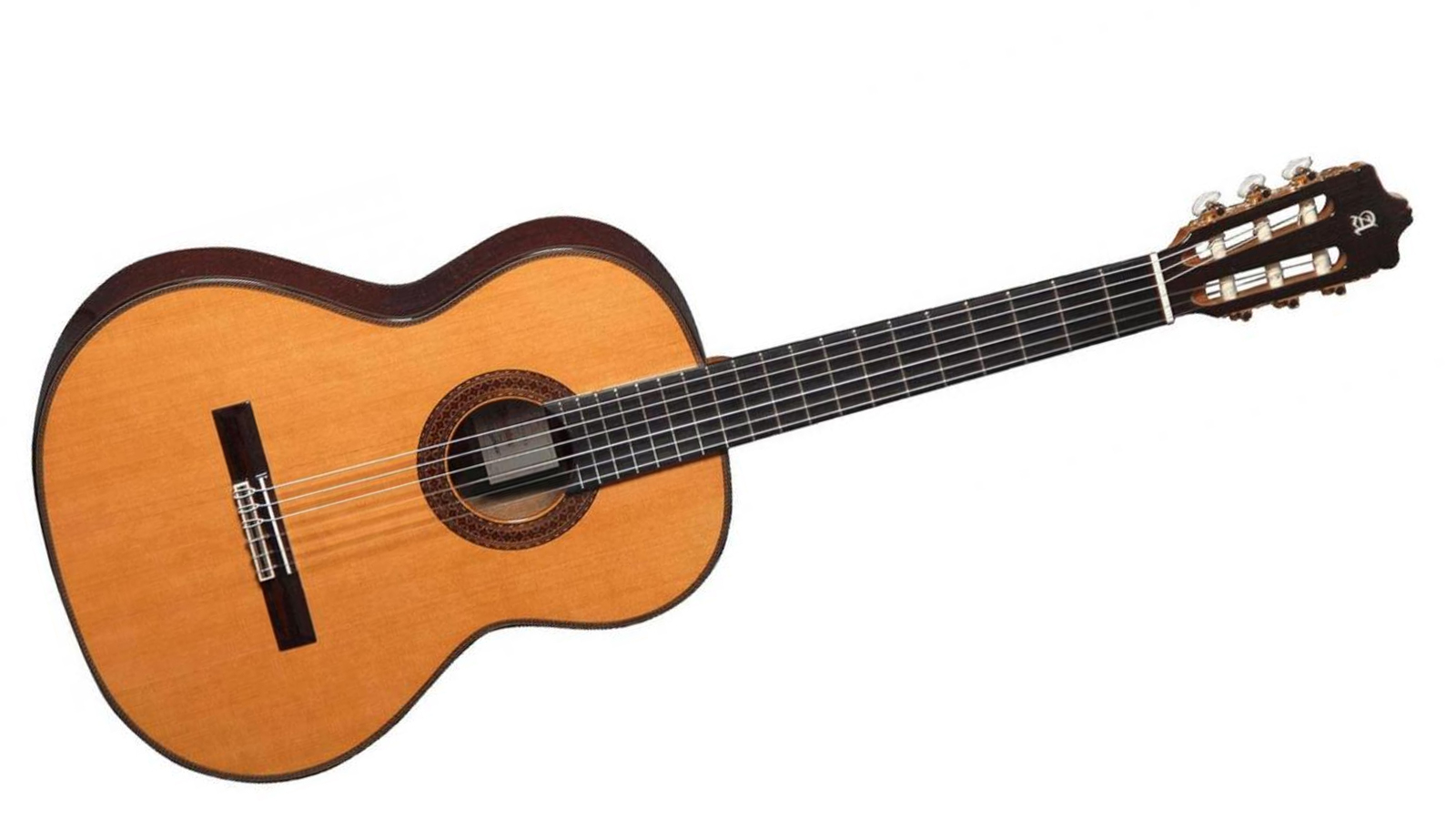
6. Alhambra 7 C Classic Conservatory
Our expert review:
Specifications
Reasons to buy
Reasons to avoid
✅ Buy if you want the traditional classical experience: With its wide neck and classic materials, this guitar recreates some of the greatest classicals of the 70s.
❌ Avoid if you have small hands: For beginners or those with smaller dimensions, that neck width could prove too tough to tackle.
Alhambra was greatly inspired by the classical guitars of the 1970s, so much so they chose to recreate the style and vibe of those guitars with the 7 C Classic Conservatory.
This hand-made classical guitar sports a stunning solid cedar top, as well as solid mahogany back and sides, topped off with a truly stunning rosette that results in an instrument that looks and feels as special as it sounds.
For regular players of classical guitars, the 7 C Classic Conservatory will feel very familiar, with more conventionally “classical” dimensions to the neck width and scale length, making it perfect for everything from flamenco and traditional Spanish music to classical and jazz.
The 7 C Classic’s solid tonewoods provide velvety rich tones that ooze luxury and it also comes adorned with a melamine saddle and nut, which Alhambra believes dramatically improves the transmission of sound, resulting in better resonance.
Spec comparison
If you're struggling to decide between any of my top picks, here you'll find all their key specifications in one place for easy comparison.
Model | Top | Back & sides | Neck | Fingerboard | Scale | Frets | Nut width | Electronics |
|---|---|---|---|---|---|---|---|---|
Taylor Academy 12e-N | Lutz spruce | Layered sapele | Mahogany | Crelicam Ebony | 25.5" | 17 | 1.875" | Yes |
Ibanez GA35TCE | Spruce | Sapele | Nyatoh | Walnut | 25.5" | 21 | 1.811" | Yes |
Yamaha C40II | Spruce | Locally sourced tonewood | Locally sourced tonewood | Rosewood | 25 9/16" | 19 | 2" | No |
Alvarez AC70HCE | Sitka spruce | Rosewood | African mahogany | East Indian rosewood | 25.6" | 22 | 1.875" | Yes |
Cordoba Cadete 3/4 | Canadian cedar | Mahogany | African mahogany | Pau ferro | 24.2” | 19 | 1.889" | No |
Alhambra 7 C Classic Conservatory | Solid cedar | Solid mahogany | Mahogany/ebony | Ovangkol | 25.5" | 19 | 2.04" | No |
Also consider
For the vast majority of players, the above choices should have all the bases covered. If you didn't find what you were looking for though, here's a few more options for you to look at.
Godin ACS-SA Slim
Silver Leaf Maple & Canadian Laurentian Basswood | 25.5" scale | 1.715" nut width | LR Baggs electronics
Designed to appeal to electric players looking to invite the distinctive sound of a classical guitar into their rig, the Godin ACS-SA is loaded with modern appointments. Featuring a slim-profile neck, an electric-style body, and the inclusion of a 13-pin synth connection, this is not your grandpappy's classical guitar.
★★★★☆
Cordoba C4-CE
All mahogany body | 25.6" scale | 2" nut width | Fishman Sonitone Classical electronics
Featuring a solid African mahogany top, this classical provides a crisp, eloquent tone that delivers plenty of volume and sustain – not something you’re always guaranteed from a nylon-strung guitar. Combine this rich and inspiring tone with the slightly thinner 50mm-width neck and you get a guitar with playability to match its stunning sonic presence.
★★★★½
Breedlove ECO Pursuit Exotic S Classical
Solid Western Red Cedar & Ecotonewood Layered African Mahogany and Myrtlewood body | 25.3" scale | 1.89" nut width | Fishman Presys I electronics
The Breedlove ECO Exotic S certainly lives up to its name, combining a stunning solid red cedar top with layered African mahogany and myrtlewood back and sides. This lovely combination of tonewoods results in a perfectly balanced sound with fantastic sustain and projection.
★★★★☆
How to choose
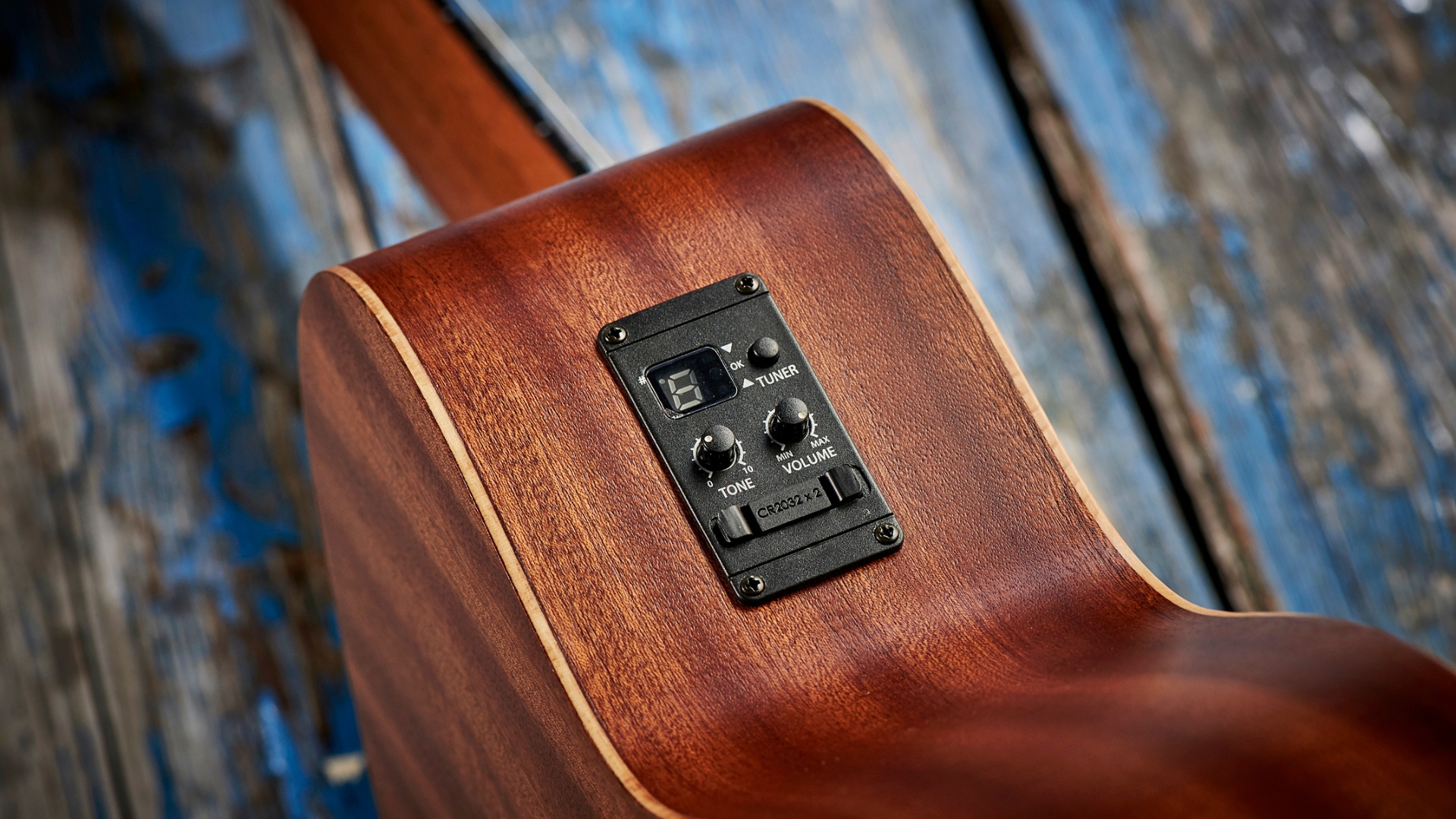
If you’re buying your first classical guitar, or are just considering what would make buying a new classical guitar an upgrade on any you may already have in your collection, there are several things I think you need to consider to make sure it’s the right fit for you, because, in my experience, it can be the difference between loving and loathing your classical guitar.
1. Playability
You can trust Guitar Player.
The positioning you take up when playing classical guitar is a little unique, so making sure that it works for your body and arms is important. If you’re a smaller player, there are lots of fantastic short-scale classical guitars that might be far more comfortable to play.
2. Authentic or contemporary?
When buying a classical guitar you will undoubtedly face the question of whether you go for a truly authentic, classical instrument, or something that blends more modern features – this may be referred to as a hybrid guitar.
If you are a seasoned classical guitar player, we’d recommend sticking to the more authentic classical guitars, as these will have the dimensions, features, and sounds you will be familiar with, whereas hybrid or contemporary classicals could have different scale lengths, neck widths, and hardware appointments that may feel alien, though this would likely be far better for traditional acoustic or electric players.
3. Electronics
Do you need to have a pickup in the guitar? Unlike some of the biggest-bodied traditional acoustics that can have a valiant effort of trying to be heard even in busy venues, a classical guitar can very quickly be drowned out. If you’re a performer, I would recommend investing in a classical guitar with a pickup to avoid this scenario, or if you’re unsure if you need one from the outset, do some investigating into aftermarket pickups that you could install at a later date.
As a final option, you can always use a microphone, and if you sit when you play, this may be your preferred choice. I would suggest investing in your own directional, condenser microphone, so you know your guitar will always sound great – many venues may not have lots of variety when it comes to microphones, so bringing your own is a safer bet.
FAQs
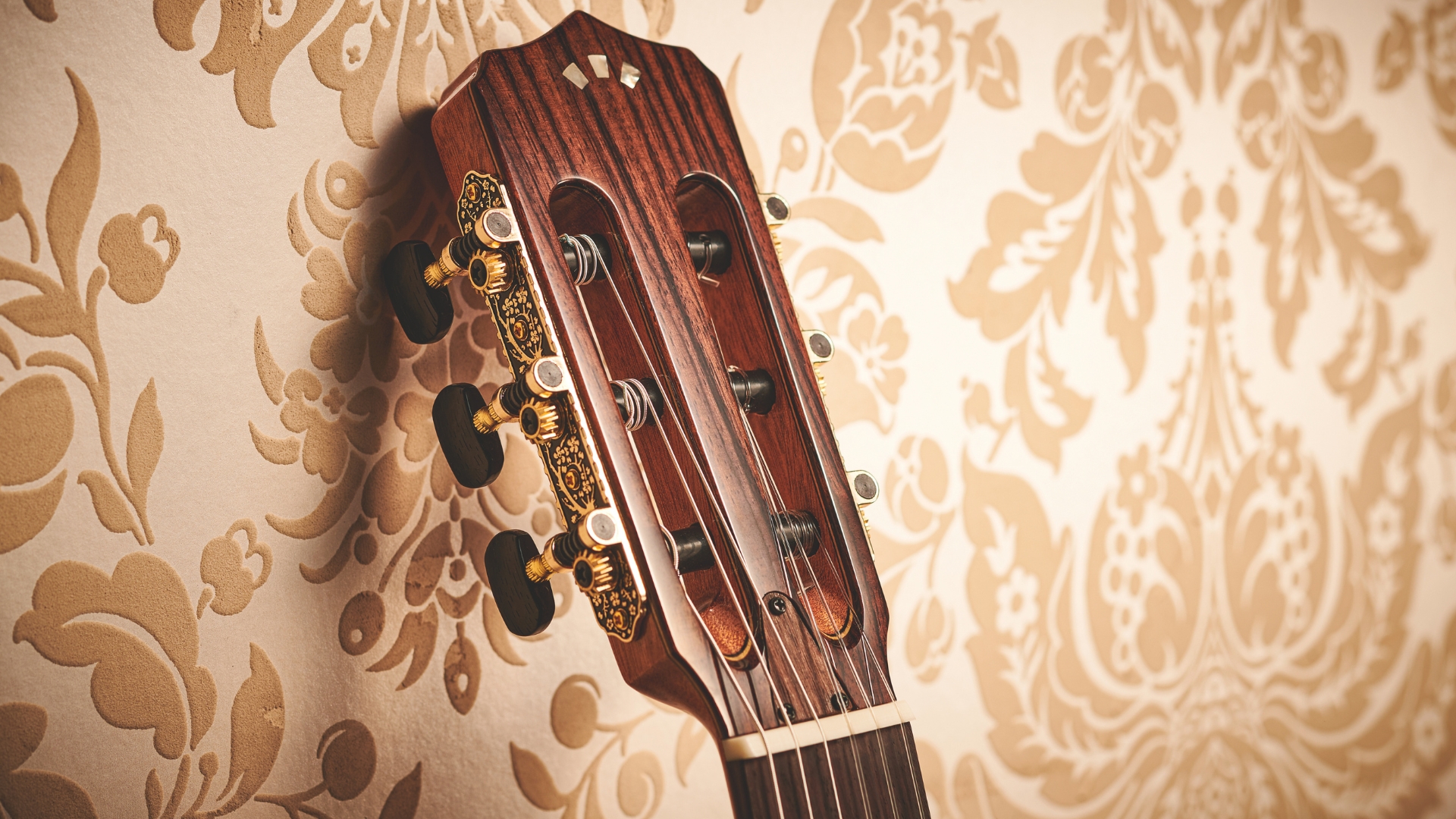
How is a classical different from a traditional acoustic?
The most obvious difference between a classical guitar and a traditional acoustic is that classical guitars use nylon strings, compared to the steel strings used on a traditional acoustic. Nylon-strings are usually used for a finger-picking style of playing, so classical guitar necks are generally a little wider to allow for easier access for this technique.
Classical acoustics will generally be quieter than their traditional acoustic counterparts, due to their body size – a dreadnought acoustic would is significantly larger than most classical guitar bodies – and bracing, as well as the nylon strings not being as bright, and the fact they aren’t (generally) played with a pick.
What is the difference between a classical guitar and a flamenco guitar?
From a distance, a classical guitar and flamenco guitar look pretty much the same – in fact, even up close you may only notice the difference once you pick both up. The strings on a flamenco guitar will sit closer to the fretboard, allowing for quick, articulated transitions between notes.
Flamenco guitars will also often lack some of the sustain that a classical guitar may have due to a thinner piece of wood being used for the top. This reduces weight and contributes to the more percussive tone of a flamenco guitar. The sides of a flamenco guitar may also be shorter, meaning the whole guitar feels a little shallower.
Why do classical guitars use nylon strings?
The sound quality of nylon strings is vastly different to steel strings, producing a warmer, round tone. Nylon strings were developed as a replacement for gut strings – which are exactly what they sound like… strings made from the intestines of animals – used on the very earliest classical guitars. Nylon had a similar tone and timbre to gut strings, with the benefit of added durability and availability.
Nylon strings also require less tension than steel strings, which means the entire structure of the guitar doesn’t need to be quite as rigid, so lighter bracing can be used. This in itself produces a unique tonality that can’t be achieved with a traditional acoustic, due to the strengthening required to cope with the tension required for steel strings.
Can I install a pickup on a classical guitar?
You can, but your options will be slightly more limited than with steel-string acoustics. Classical guitars use nylon strings, which don’t produce magnetic fields, so don’t work well at all with magnetic pickups, however Piezo pickups or soundboard transducers can be used.
Of the two, I would recommend using a soundboard transducer as this produces the most natural tone. When installing any pickup, consider that a permanent installation may be invasive and could impact the natural, acoustic tone of the guitar, so something that is easily removable may be a better option. Alternatively, some classical guitars will come with a pickup ready-installed.
If any kind of installation feels a step too far, for the same price as one of the best classical guitar pickups, you could invest in a condenser microphone and stand instead, which offers a different route to amplification.
How do I mic a classical guitar for recording?
A classical guitar can be recorded in a very similar way to any other acoustic; with a single microphone pointed towards the 12th fret on the guitar, at around the point where the neck meets the body. My preference with classical guitar is to use a stereo set up, with a second microphone placed pointing further up the neck to get the nuances from the player’s fretting fingers.
If you want a slightly bassier tone, point the lower microphone closer towards the sound hole. Another great addition – particularly if you are in a nice, reverberant room – is to use an ambient microphone to blend with your primary spot-mics. Whenever you use multiple microphones on a single sound source, be careful of phase, so make sure the microphones are the same distance away from the guitar, or use the 3:1 rule (the distance between two microphones should be at least three times the distance from the guitar if they are spaced apart) or you may find your tone is negatively impacted.
Are all classical guitars the same scale length?
While the ‘standard’ scale length of a classical guitar is 25.6”, not all classical guitars have the same scale length, with some custom scale lengths available, and short-scale instruments very common – one of the reasons classical guitars are often the choice of beginners.
Older classical guitars are particularly likely to have unique/uncommon scale lengths, as they may have been hand-crafted with less precise measurements, though this in no way means they are less well made.
Why don't classical guitars have strap buttons?
As classical guitars are generally designed to be played sat down, there isn’t a need for strap buttons, because there isn’t a need for a strap – though some classical guitarists do still utilize straps with classical guitar. Alongside this, adding strap buttons means drilling holes into the guitar and even the mention of this would be blasphemy for many classical guitarists, as this comes with a risk of damaging the delicate finish of the guitar – some classical guitars are classical by name and nature, with many players using instruments that are many years old.
Why do some classical guitarists use arm rests?
Arm rests are utilized by some classical guitarists to increase comfort when playing, as the edge of a classical guitar is quite angular and this creates a smoother platform upon which the arm can rest. Resting the forearm on the top of the guitar can also dull the sound of the guitar, reducing the resonance, volume, and projection. The introduction of an arm rest can remove the arm from direct contact and help retain the guitar's natural tone.
Another reason why some people opt for arm rests is simply that they want to protect the finish on their classical guitar. Friction of the arm moving across the top of the body can wear any lacquer, which may be undesirable if you want to keep the finish in pristine condition.
Do I need a foot stool to play classical guitar?
While it’s common to see classical guitar players using a foot stool to help bring the guitar further up your body, due to your knee sitting higher when planted on the stool, it’s not a necessity. Another solution would be to use a strap with a specially designed clip for classical guitar, this would hold the guitar higher and reduce the need for support from your leg.
Key terms
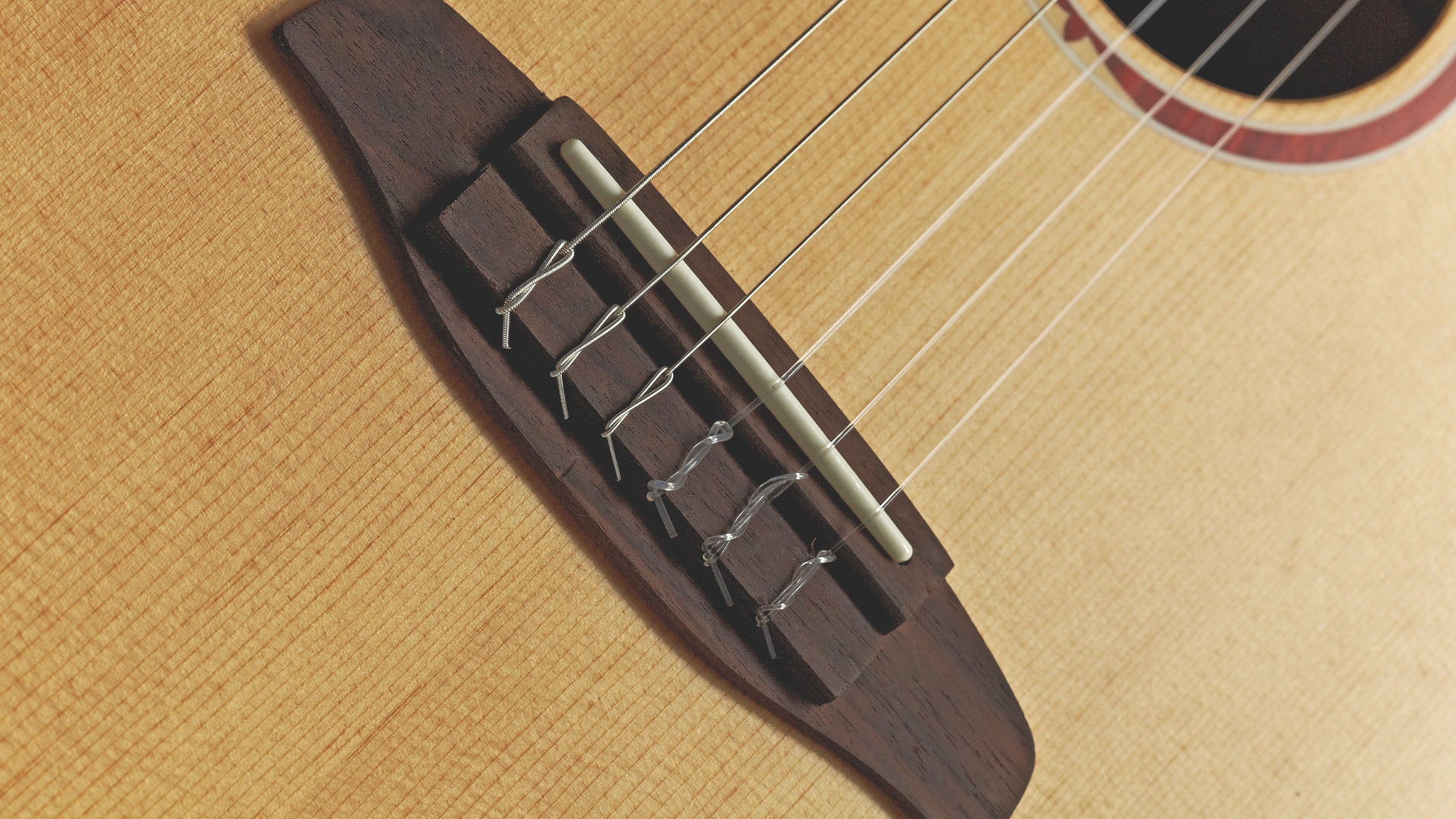
- Action: The height at which the strings are set. A lower action may allow you to have faster fretting for quick runs, but can introduce fret buzz, where the strings vibrate against the metal frets when playing.
- Armrest: A device that sits on the top of the guitar and allows you to rest your arm on, rather than around the edge of the guitar.
- Bracing: The pieces of wood on the interior of the guitar that adds strength to the frame and contributes to the tone and projection of your guitar.
- Footstool: A small stool to place underneath the leg that sits below the body of your guitar (right leg if right handed, left leg if left handed) to raise it up and create a platform for your classical guitar to rest.
- Heel: An extended piece of wood at the base of the back of the neck where it meets the body offering additional support. This may be the same piece of wood as the neck is made from, or could be a different, separate piece of wood.
- Nut: The small bar that sits across the very top of the guitar neck where it moves into the headstock. The strings sit inside the nut.
- Piezo: A type of pickup that converts the physical vibrations of a guitar's body into an electrical signal.
- Projection: How a guitar relays its sound to an audience in terms of volume and distance.
- Rosette: A decorative design around the soundhole.
- Saddle: A piece of material, not dissimilar from the nut, located on the bridge of the guitar that suspends the strings allowing them to vibrate.
- Scale length: The scale length is the distance between the nut at the top of the neck and the bridge at the bottom of the guitar.
- Soundboard: The top wood of the guitar that vibrates when the strings are plucked, acting as the platform to amplify the sound.
- Tie block/bridge: Sitting towards the base of the guitar, the tie block is behind the saddle and is the point that the strings are secured through tying them.
- Tuning machines: The tuning machines are attached to the headstock and are used adjust the tension on the strings to alter the pitch of each string.
How we test
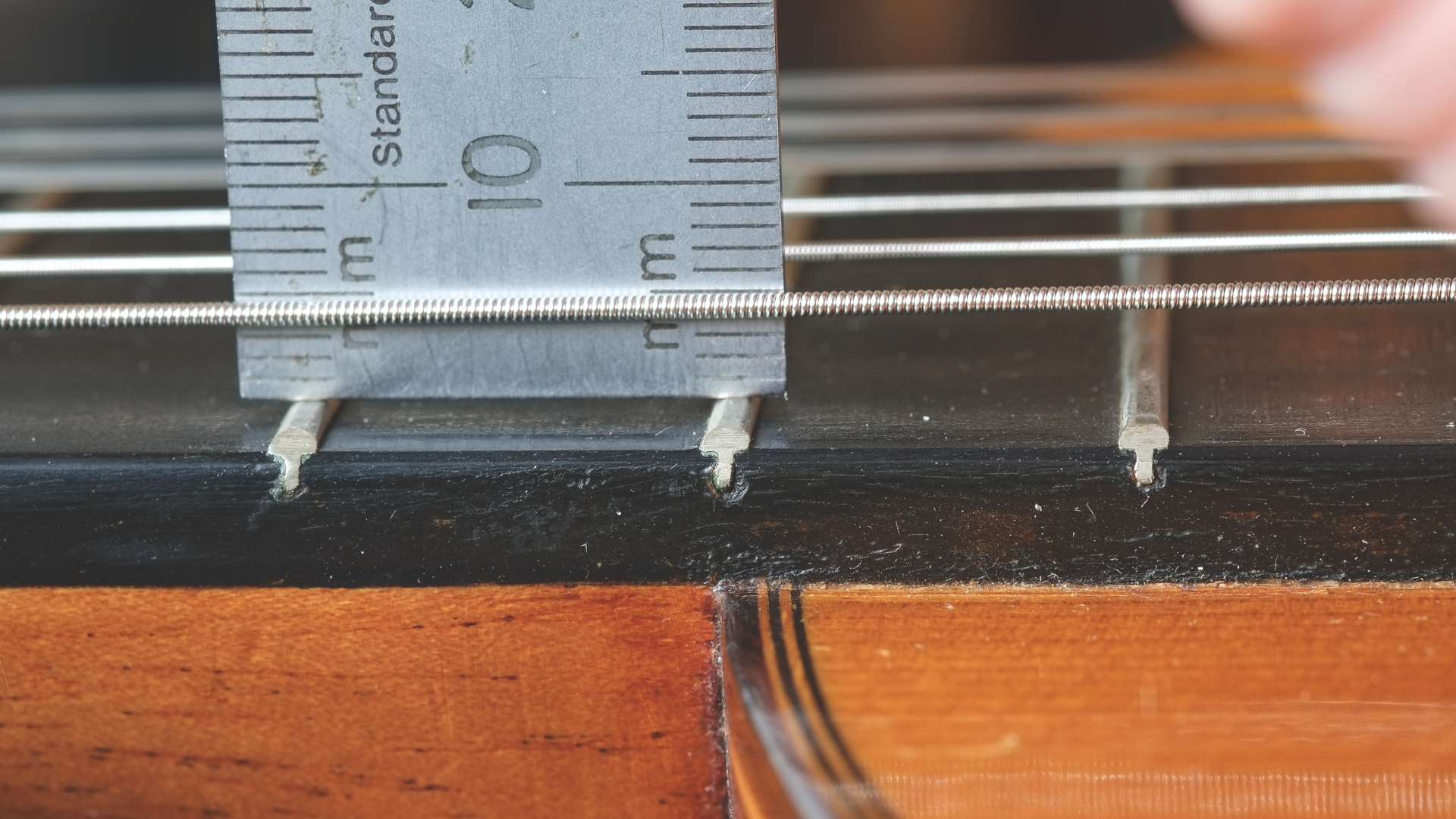
At Guitar Player, we live and breathe everything guitar related. It's our passion and we certainly hope this passion comes through in our buyer's guides. Everyone at Guitar Player is an expert in their field and we draw on this knowledge and experience when selecting the products for our guides.
When choosing what we believe to be the best classical guitars available right now, we combine our hands-on experience, user reviews and testimonies and engage in lengthy discussions with our editorial colleagues to reach a consensus about the top products in any given category.
When making our lists, we pay careful consideration to everything from budget to feature set, playability and durability to come up with an accurate representation of the best electric guitars available right now.
Read more on how we test gear and services at Guitar Player.
Related buyer's guides
- Unplug with the best acoustic guitars under $1,000
- These are the best acoustic guitar strings
- Take your acoustic tone to the next level with the best acoustic guitar pedals
- Save some cash with the best acoustic guitars under $500
- Get the best of both worlds with the best acoustic-electric guitars
All the latest guitar news, interviews, lessons, reviews, deals and more, direct to your inbox!
First and foremost, I'm a guitar enthusiast – a fanatic, some might say. I'm a firm believer that most of the world's problems can be solved with a Gibson SG and a catastrophically loud amp. Before writing about guitars for a living as a Senior Deals Writer on Guitar Player, I worked in music retail for 7 years, giving advice on guitars, basses, drums, pianos, and PA systems. I also have a passion for live sound; I'm a fully qualified sound engineer with experience working in various venues in Scotland.
- Matt McCrackenJunior Deals Writer
- Connor Godfrey
